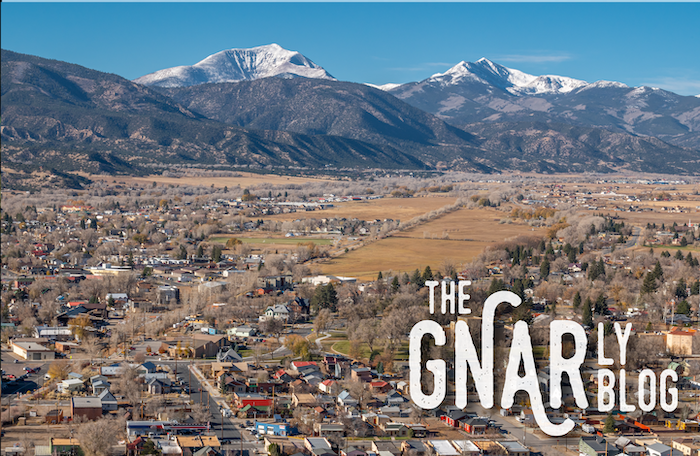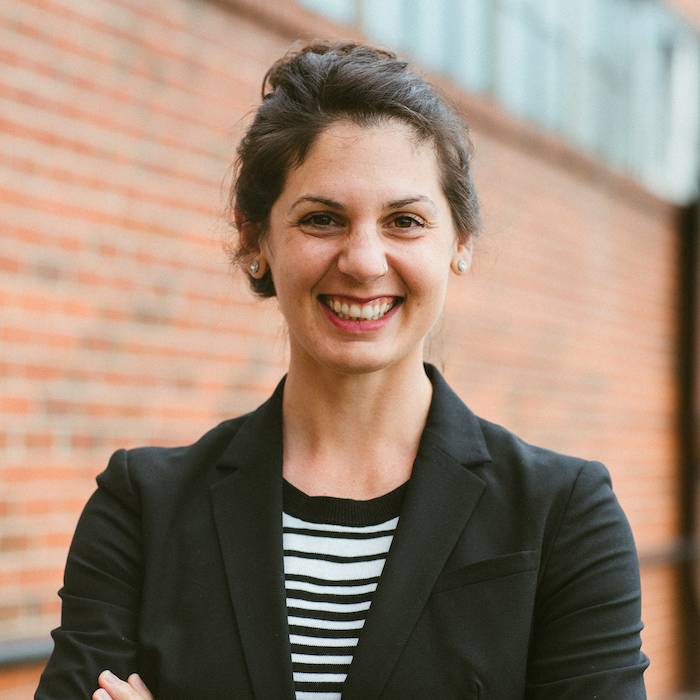
How Chaffee County, CO Crafted a "Win-Win" for Recreation and Agriculture
By: Michal Rosenoer, Senior Manager, Government & Community Relations, Hipcamp.com
In October 2022, the Chaffee County, Colorado Board of County Commissioners passed into law first-of-its-kind regulations to give landowners the chance to host low impact camping on their properties without needing to go through an expensive and time-consuming permitting process. This new law in Chaffee County is groundbreaking – by diverting campers from public lands to private lands, it solves two problems at once: the law takes pressure off the 70% public lands in the county, which are being degraded by overuse, and gives farmers and ranchers the chance to benefit financially from the fast-growing outdoor recreation industry. This win-win solution is a great model for other transitioning counties looking to support outdoor recreation while also keeping intact the agricultural and rural heritage of the community.
The Opportunity
Chaffee County, also known as “the Heart of the Rockies,” is an outdoor enthusiast’s dream. With the highest density of 14,000 foot peaks in the USA and the most-rafted stretch of river in the country (Browns Canyon National Monument on the Arkansas River), year-round tourism and outdoor recreation are the backbone of the area’s economy. However, as an historic agricultural and mining community, Chaffee has noted in multiple community-wide studies that multi-generational farmers and ranchers often feel at odds with the burgeoning outdoor recreation community and constant stream of visitors who are denuding grazing areas, damaging fences to access trailheads, and so on. Similarly, 70% of lands in Chaffee County are public lands; increased visitation, especially since the COVID-19 pandemic, has put unsustainable pressure on public lands and is pushing campers farther and farther into the backcountry, threatening conservation efforts and wildlife habitat.
A Community Coalition Works Together on Policy Details
The idea of low impact camping on private land arose through multiple avenues simultaneously as a potential solution to these varying problems. Over the course of a year, over fifty community leaders came together to work out the details of what eventually became known as the “commercial camping on private land” ordinance. These partners included:
- Ranchers, farmers, and agricultural organizations, including the Colorado Cattlemen’s Agricultural Land Trust, Chaffee County Cattlemen’s Association, and Colorado Land Link.
- Land managers, outdoor recreation advocates, and environmental groups, including the Greater Arkansas River Nature Association, Envision Chaffee County, the Chaffee County Heritage and Historic Byway Commission, and local representatives from the Bureau of Land Management and U.S. Forest Service.
- Local business leaders, including the Chaffee County Economic Development Corporation, outdoor recreation outfitters, real estate developers, and more.
These community members got together to share information through coalition meetings, advisory meetings with the land planning staff and consultants, and in public hearings with the county commission and planning commission through both written and public comment. This community collaboration led to the creation of a land ordinance that meets the community’s economic development needs while protecting neighborhood feel and rural values.
After multiple rounds of public hearings, the Board of County Commissioners unanimously approved the new “commercial camping on private land” ordinance in October 2022, which went into effect February 1, 2023. Now approximately 250 properties are eligible to apply for a cost-efficient, clear, and accessible permit to host low-impact campers on their properties. The regulations provide clear guidelines for landowners and set expectations, which makes this land use safer for everyone. If even 50% of these landowners decide to host 2 campsites each, the community will benefit in the following ways:
- Landowners stand to make anywhere from $5,000 to $25,000 a year in secondary income that will support their conservation efforts, land ownership, and protect open spaces for years to come.
- The county, should they pass a lodging tax, stands to gain nearly $100,000 annually in transient occupancy taxes
- Campers who partake in private land camping are likely to spend over $3,750,000 in local businesses within Chaffee County
- Campers are likely to be diverted away from public lands campgrounds and sensitive dispersed campsites, allowing for conservation gains in wilderness areas
Chaffee County Commissioner, Keith Baker, summed up community sentiment about the ordinance passing as well as any of us – "It's never been harder to make a living off the land,” said Baker. “If we want to protect our agricultural and rural heritage in Chaffee, we must be creative. Expanding economic opportunities for rural landowners in Chaffee by allowing for well-regulated, small-scale private land camping is a huge win for our community. This first-of-its-kind land use will reduce pressure on public lands, create new revenue streams for the ag community, and support our outdoor recreation economy. I'm proud to have worked with the many stakeholders who collaborated to make it a reality.”
The Final Policy
After multiple rounds of hearings by both the planning commission and the Chaffee County Board of Commissioners, the commissioners unanimously approved the new “commercial camping on private land” ordinance in October 2022, which went into effect February 1, 2023. Below is a summary of the new policy:
|
Permitting requirements |
Administrative application and review managed by the county planning department. Higher levels of review required for commercial and rural commercial recreational zones, if located in undisturbed or highest quality wildlife habitat, in a wildlife migration corridor, or within 300 yards of the Scenic and Historic byway. |
|
Acreage minimum |
5 acres |
|
Zoning requirements |
Allowed in all zones except for industrial. Primary use of the property must be agritourism or agriculture-based. |
|
Campsite density |
Up to 5 campsites for properties under 100 acres, and up to 10 campsites for properties over 100 acres |
|
Water and bathroom access |
Dry camping is allowed. Sewage must be disposed of off-site. |
|
Property ownership |
Properties must be owned by a Chaffee County resident; does not need to be a primary residence. Property managers must be within a 60-minute drive radius when campers are present. |
|
Setbacks |
- 50 feet from property lines - 100 feet from dwellings on adjacent property - 50 feet from ditches or floodplains and 100 feet from edges of streams, rivers, or wetlands to protect major game migration through this specific high-desert landscape |
|
Types of camping allowed |
Vans, RVs, and tent sites allowed. Alternative structures including canvas tents, yurts, and cabins will be discussed by the county commission at a later time. |
"This is how the government is supposed to work – with businesses, landowners, and the public sector coming together to create innovative solutions to community needs,” said Jake Rishavy, Executive Director of the Chaffee County Economic Development Corporation, “The EDC is proud to have supported this effort to build new financial opportunities for landowners while protecting the environment and our community values. I hope this will serve as a model for other counties across Colorado and the nation on how to support rural communities in the face of growing interest in outdoor recreation."
To learn more about the policy, feel free to reach out to the Hipcamp policy team at policy@hipcamp.com.

Michal Rosenoer joined Hipcamp as the Senior Manager of Government and Community Relations in 2021. In her role, she specializes in building creative and collaborative policy solutions that support rural economic development and conservation while promoting sustainable outdoor recreation and agritourism. Michal holds degrees in environmental policy and economics from the University of California, Berkeley and lives in Buena Vista, Colorado with her husband and son. Readers are invited to reach out to policy@hipcamp.com with questions.

